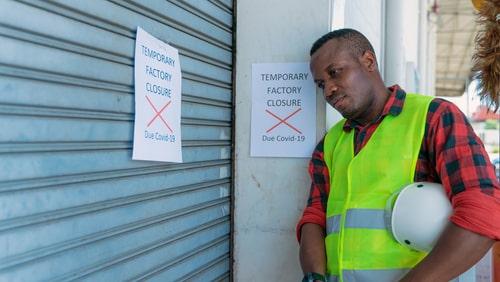Recent Blog Posts
Determining Your Children’s Living Arrangements After Divorce
 For many divorcing parents, decisions related to their children are not only legal matters, but extremely personal matters. This is especially true when it comes to what the children’s living arrangements will be after the divorce, as the outcome can have major ramifications on parent-child relationships and the day-to-day lives of both the parents and the children. As you attempt to resolve the question of parenting time in your divorce, you should consider a few important questions.
For many divorcing parents, decisions related to their children are not only legal matters, but extremely personal matters. This is especially true when it comes to what the children’s living arrangements will be after the divorce, as the outcome can have major ramifications on parent-child relationships and the day-to-day lives of both the parents and the children. As you attempt to resolve the question of parenting time in your divorce, you should consider a few important questions.
Can You Reach an Agreement With Your Spouse?
If you and your spouse are on fairly good terms, you can work together to create a parenting time schedule that meets the needs of the whole family. Doing so can help you save time and stress during the divorce process, and it can also help you be better, more cooperative co-parents after the divorce is complete. As you work toward an agreement, it may be important to discuss who, if anyone, will continue to live in the family home, how parenting time can be balanced with each parent’s work schedule, how you will share holidays and special occasions, and how you will resolve any future disagreements.
What Happens If I Cannot Afford to Pay Spousal Support?
 The prospect of getting a divorce can be daunting, not only because of the major life changes it will bring, but also because of the many expenses associated with the process. You may be concerned about how the divorce will affect your financial stability, especially if you are ordered to pay spousal support, otherwise known as alimony or maintenance. You should know that an attorney can help you avoid financial hardship related to a spousal support order both during and after the divorce process.
The prospect of getting a divorce can be daunting, not only because of the major life changes it will bring, but also because of the many expenses associated with the process. You may be concerned about how the divorce will affect your financial stability, especially if you are ordered to pay spousal support, otherwise known as alimony or maintenance. You should know that an attorney can help you avoid financial hardship related to a spousal support order both during and after the divorce process.
Will I Be Ordered to Pay Alimony?
Many people are under the assumption that alimony is a part of every divorce resolution, but in Illinois, this is not the case. You will not automatically be ordered to pay spousal support just because you are getting divorced, nor simply because your spouse asks for it. Furthermore, spousal support is not used as a punishment for something that either spouse did to damage the marriage, so you do not need to worry about your past behavior influencing the court’s decision on this matter.
What Are the Options for Establishing Legal Paternity in Illinois?
 When a child is born to unmarried parents, there is often uncertainty surrounding the father’s involvement in the child’s life, or even the father’s identity. Establishing legal paternity can remove much of that uncertainty and lead to many important benefits, including financial support for the child and parental rights for the father. Under Illinois law, there are several options for establishing paternity, and it is important to consider which one is the best choice for your case.
When a child is born to unmarried parents, there is often uncertainty surrounding the father’s involvement in the child’s life, or even the father’s identity. Establishing legal paternity can remove much of that uncertainty and lead to many important benefits, including financial support for the child and parental rights for the father. Under Illinois law, there are several options for establishing paternity, and it is important to consider which one is the best choice for your case.
Methods of Establishing Paternity
Some ways of establishing paternity are more difficult than others, and the options available will depend in large part on the nature of the relationship between the child’s parents. The possible methods of establishing a man’s parentage in Illinois include:
- Presumption of paternity - In Illinois, a man is presumed to be the legal father of a child if he was previously married to the child’s mother within 300 days prior to the child’s birth, even if he is no longer married to the mother when the child is born. Additionally, a man who marries the child’s mother after the child’s birth may be presumed to be the father if he agrees to be listed as such on the birth certificate. However, it is important to note that a presumption of paternity may be rebutted if there is evidence that another man is the child’s biological father.
What Can I Do If My Spouse is Dissipating Marital Assets in Illinois?
 The divorce process is often a time of intense conflict, and unfortunately, it can sometimes bring out a person’s worst behavior. Spouses may attempt to hurt each other out of anger, resentment, frustration, selfishness, or more destructive impulses, and one way of doing so is by dissipating marital property before it can be divided in the divorce. It is important to know that if your spouse is dissipating assets, an attorney can help you hold him or her accountable and achieve a fair outcome.
The divorce process is often a time of intense conflict, and unfortunately, it can sometimes bring out a person’s worst behavior. Spouses may attempt to hurt each other out of anger, resentment, frustration, selfishness, or more destructive impulses, and one way of doing so is by dissipating marital property before it can be divided in the divorce. It is important to know that if your spouse is dissipating assets, an attorney can help you hold him or her accountable and achieve a fair outcome.
What Does It Mean to Dissipate Assets?
Broadly speaking, the dissipation of assets occurs when a couple’s marriage has entered a period of irretrievable breakdown, and one of the spouses uses marital assets in a way that has no benefit for the other spouse. In practice, this can take many different forms. For example, a spouse could attempt to transfer marital assets to a private account or to a friend or family member to save for after the divorce. Alternatively, a spouse could spend marital assets for a purpose in their own self-interest; for instance, to buy things for a person with whom they are having an affair. In some cases, a spouse will even destroy or waste marital assets to the benefit of no one.
Managing Parenting Time Challenges During the COVID-19 Pandemic
 Under any circumstances, divorced parents may find it challenging to share parenting time in a way that meets the children’s needs, fosters a strong relationship between the children and both parents, and minimizes co-parenting conflicts. Over the course of the past year, the unique circumstances of the COVID-19 pandemic have only further complicated these issues. Whether you are already divorced or you are going through a divorce now, an experienced attorney can help you handle parenting time to account for the current situation.
Under any circumstances, divorced parents may find it challenging to share parenting time in a way that meets the children’s needs, fosters a strong relationship between the children and both parents, and minimizes co-parenting conflicts. Over the course of the past year, the unique circumstances of the COVID-19 pandemic have only further complicated these issues. Whether you are already divorced or you are going through a divorce now, an experienced attorney can help you handle parenting time to account for the current situation.
How Has COVID-19 Affected Parenting Time in Illinois?
The pandemic has brought about many changes to our way of life in Illinois and throughout the United States. Some of the changes that can directly affect divorced or divorcing parents include:
- Family health concerns - Many parents are concerned about the spread of the virus when children transition between households, especially if each parent has a different perspective on upholding health precautions. Parents who are at risk of severe complications from the virus, or who live with grandparents and other older relatives, may be especially worried.
Does My Child’s Other Parent Have to Pay Child Support if He or She is Unemployed?
 Child support is an important source of financial assistance for a single parent. If you are an unmarried or divorced parent, you may have questions and concerns about getting your child support. You may wonder if your child’s other parent is still required to pay support even if he or she is unemployed. The answer to this question depends on the reason for the unemployment and other factors.
Child support is an important source of financial assistance for a single parent. If you are an unmarried or divorced parent, you may have questions and concerns about getting your child support. You may wonder if your child’s other parent is still required to pay support even if he or she is unemployed. The answer to this question depends on the reason for the unemployment and other factors.
Is the Unemployment Voluntary or Involuntary?
Millions of parents have lost their jobs or had to find lower-paying work due to COVID-19 shutdowns. They may be doing everything they can to afford their child support obligation but end up falling short of the expected amount. On the other hand, some parents attempt to evade child support responsibilities by claiming that they cannot find adequate employment. The first question that must be answered regarding child support obligations for unemployed or underemployed parents is whether unemployment or underemployment is voluntary. Has the parent quit his or her job or been laid off? Has the parent made genuine efforts to gain suitable employment? If the parent’s unemployment is voluntary, is this unemployment in the child’s best interests?
Do Grandparents Ever Have a Say in Illinois Child Custody Matters?
 When a child is being raised by a single parent, grandparents often play an important role in the child’s life by assisting with child care and financial support, and simply by being a loving and positive presence. Usually, even when grandparents are heavily involved, the parents still maintain parental rights and the authority to initiate legal proceedings regarding the child. However, there are some cases in which Illinois grandparents may seek legal rights regarding their grandchildren.
When a child is being raised by a single parent, grandparents often play an important role in the child’s life by assisting with child care and financial support, and simply by being a loving and positive presence. Usually, even when grandparents are heavily involved, the parents still maintain parental rights and the authority to initiate legal proceedings regarding the child. However, there are some cases in which Illinois grandparents may seek legal rights regarding their grandchildren.
Can Grandparents Petition for Child Custody in Illinois?
Illinois now refers to child custody matters using the term “allocation of parental responsibilities,” and in most cases, a child’s parents are the ones with the authority to petition for legal action in this area, whether they are doing so as part of the divorce process or they have never been married. However, a grandparent may be able to do so if the child is not in the physical custody of either parent, or if the parent who is related to the grandparent is deceased, and one of the following is true of the other parent:
Which Assets Are Divided in an Illinois Divorce?
 As part of the transition from being married to being single that occurs in a divorce, Illinois couples are required to equitably divide all marital assets and debts. This is an issue that can lead to much conflict, and the outcome can have serious financial implications for both spouses. As such, it is important to be prepared by understanding the assets you will be expected to divide and how you can do so in a way that protects your interests.
As part of the transition from being married to being single that occurs in a divorce, Illinois couples are required to equitably divide all marital assets and debts. This is an issue that can lead to much conflict, and the outcome can have serious financial implications for both spouses. As such, it is important to be prepared by understanding the assets you will be expected to divide and how you can do so in a way that protects your interests.
Examples of Marital Assets
Illinois law defines marital assets as any properties that are acquired by either spouse during the marriage and before any judgment of legal separation, with a few exceptions including assets acquired by one partner through a gift or inheritance, and assets that are designated as non-marital in a prenuptial or postnuptial agreement. Some examples of marital property may be obvious, but others you may not expect. Marital assets can include all of the following:
How Does a Parent’s Substance Abuse Affect Child Custody Decisions?
 In most cases in which a child’s parents get a divorce, and in many cases in which the parents have never been married, an Illinois court will attempt to reach a resolution in which both parents have substantial parenting time and a role in parental decision-making responsibilities. However, the child’s best interests are the most important consideration, and in cases in which a parent’s behavior could put the child at risk, the court may order a restriction of parental responsibilities. One such example is when a parent has problems with drug addiction or substance abuse.
In most cases in which a child’s parents get a divorce, and in many cases in which the parents have never been married, an Illinois court will attempt to reach a resolution in which both parents have substantial parenting time and a role in parental decision-making responsibilities. However, the child’s best interests are the most important consideration, and in cases in which a parent’s behavior could put the child at risk, the court may order a restriction of parental responsibilities. One such example is when a parent has problems with drug addiction or substance abuse.
Parental Responsibility Restrictions Due to Substance Abuse
The habitual abuse of alcohol, illegal drugs, and other controlled substances can not only impair a parent’s ability to perform parental responsibilities, but can also directly harm their child. Under Illinois law, parenting time and decision-making responsibilities can both be restricted if there is sufficient evidence that a parent has put the child’s physical, mental, or moral health, or emotional development at risk.
Can Living with a New Partner Impact My Divorce Support Payments?
 For those going through a divorce, the financial demands that come along with the legal process can make things challenging, especially for lower-earning or stay-at-home spouses. Rarely do spouses make the same amount of money, which can sometimes lead to issues throughout the marriage, divorce, and months following the split. In order to make up for this financial discrepancy, Illinois law requires divorcing couples to discuss spousal maintenance, also known as spousal support, and divorcing parents to create an agreement regarding child support obligations. Those in a cooperative divorce can typically create these legal designations with the help of their attorneys, while those battling it out in a courtroom will have these decisions made for them by a judge. Your divorce agreement is meant to last the tests of time, but what about when circumstances change? Many divorcees will seek out new romantic relationships as time passes, and in some cases, these new partners can impact the details of your divorce agreement.
For those going through a divorce, the financial demands that come along with the legal process can make things challenging, especially for lower-earning or stay-at-home spouses. Rarely do spouses make the same amount of money, which can sometimes lead to issues throughout the marriage, divorce, and months following the split. In order to make up for this financial discrepancy, Illinois law requires divorcing couples to discuss spousal maintenance, also known as spousal support, and divorcing parents to create an agreement regarding child support obligations. Those in a cooperative divorce can typically create these legal designations with the help of their attorneys, while those battling it out in a courtroom will have these decisions made for them by a judge. Your divorce agreement is meant to last the tests of time, but what about when circumstances change? Many divorcees will seek out new romantic relationships as time passes, and in some cases, these new partners can impact the details of your divorce agreement.








